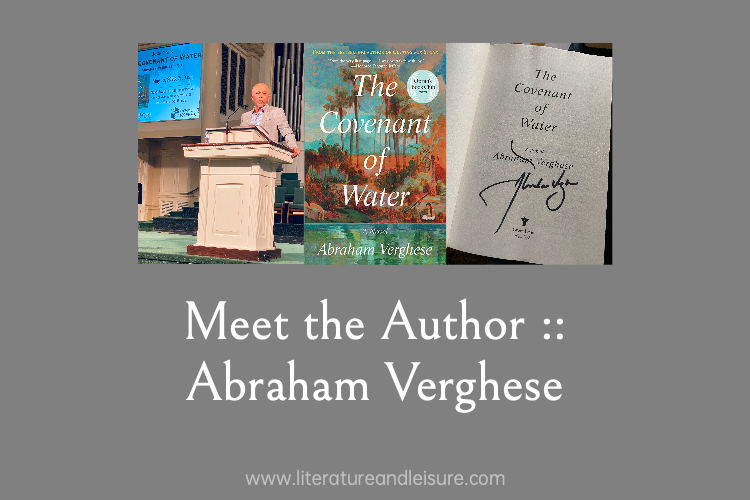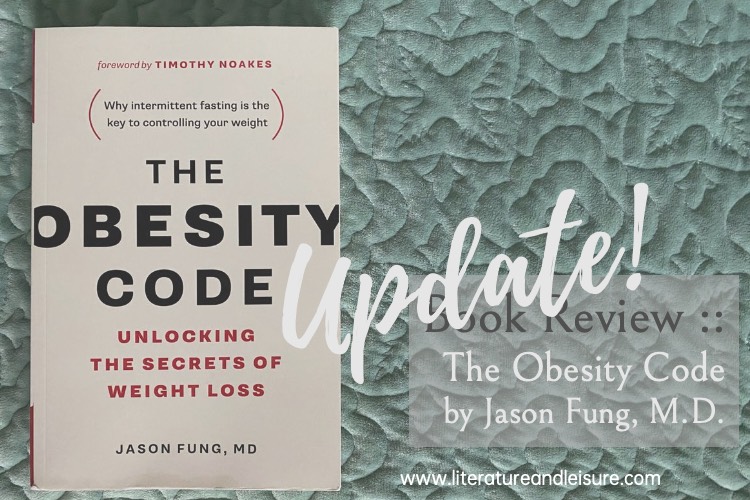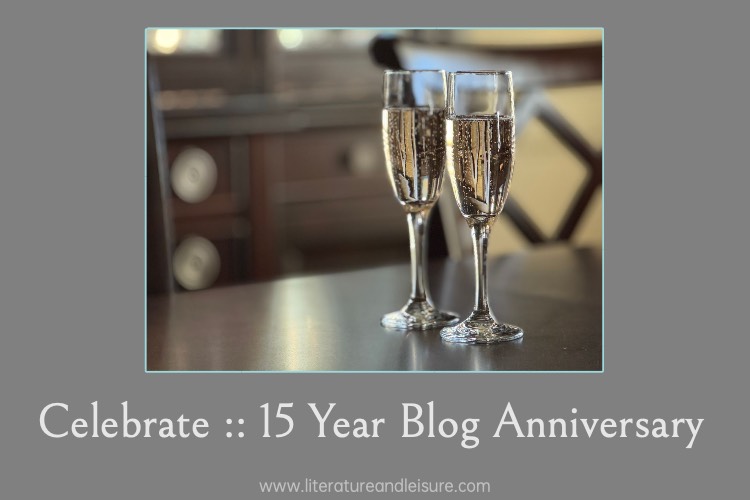
Last week when I was wrapping up my review of The Covenant of Water by Abraham Verghese, I saw that he was going to be speaking locally the very next day. I immediately reserved two seats and texted my husband about our plans.
In short, Abraham Verghese was phenomenal. COVID still being with us, he was not meeting and greeting guests as he would have liked. So unfortunately, I don’t have the sort of picture with him that I was able to get with Amor Towles, but I completely understand. This was his first stop on a ten-city tour, and as he said (being an infectious disease physician), he understands the likelihood of not making it all the way through if he’s interacting in close proximity with hundreds of people every couple of days.
I didn’t record the event, so these are not verbatim quotes but paraphrases based on the notes I made and my best effort to capture what I felt Abraham Verghese was trying to convey:
On the genesis of The Covenant of Water: His mother filled more than 150 pages with anecdotes and sketches in response to her granddaughter – Verghese’s niece – asking, “What was it like when you were growing up.” She wrote about growing up in this area of the southern tip of India, its landscape, customs, and people. (Verghese writes about this in the Acknowledgements of the novel.)
On what inspired him to write fiction: He was on the front line of the AIDS epidemic in Johnson City, TN, and was writing about it for clinical journals. He said he realized that clinical writing was too cold and that the language of science didn’t fully capture the truth of the AIDS epidemic. (Verghese’s book My Own Country: A Doctor’s Story is about this experience.)
On what it’s like to investigate a past: The past is unreliable. Only the future is certain.
On when faith meets science: This is not a contradiction. Faith is belief in the absence of proof. As a physician, he said it always gives him great comfort when his patient is a person of faith because (quoting John Irving in The World According to Garp) “life is a terminal condition” and their faith will provide a hope that is beyond what he can provide as a doctor.
On writing process: He said he wishes he had one. He envies those who have a scripted plan of when and how to write. He writes when he can – which for a doctor ends up being at night and on weekends. He indicted he doesn’t know what is going to happen to his characters. He just puts them under pressure and sees where it goes.
On if he’s pleased with his work: He indicated that there’s much uncertainty when he finishes a work. Unlike Gabriel García Márquez with One Hundred Years of Solitude who, when he finished, declared it a masterpiece, Verghese has no idea until it reaches readers. So, his confidence comes from us. In his first conversation with Oprah after he learned she had selected The Covenant of Water for her book club, she told him that when she was about 200 pages from the end, she was disappointed because there wasn’t more. That was very affirming for him.
He also read two passages – which I always enjoy. I understand that he reads the audio version of The Covenant of Water, so that may also be worth a listen.
These are just a few highlights from his talk, so if you have the chance to see him in person yourself, by all means take the opportunity!





Comments
Powered by Facebook Comments